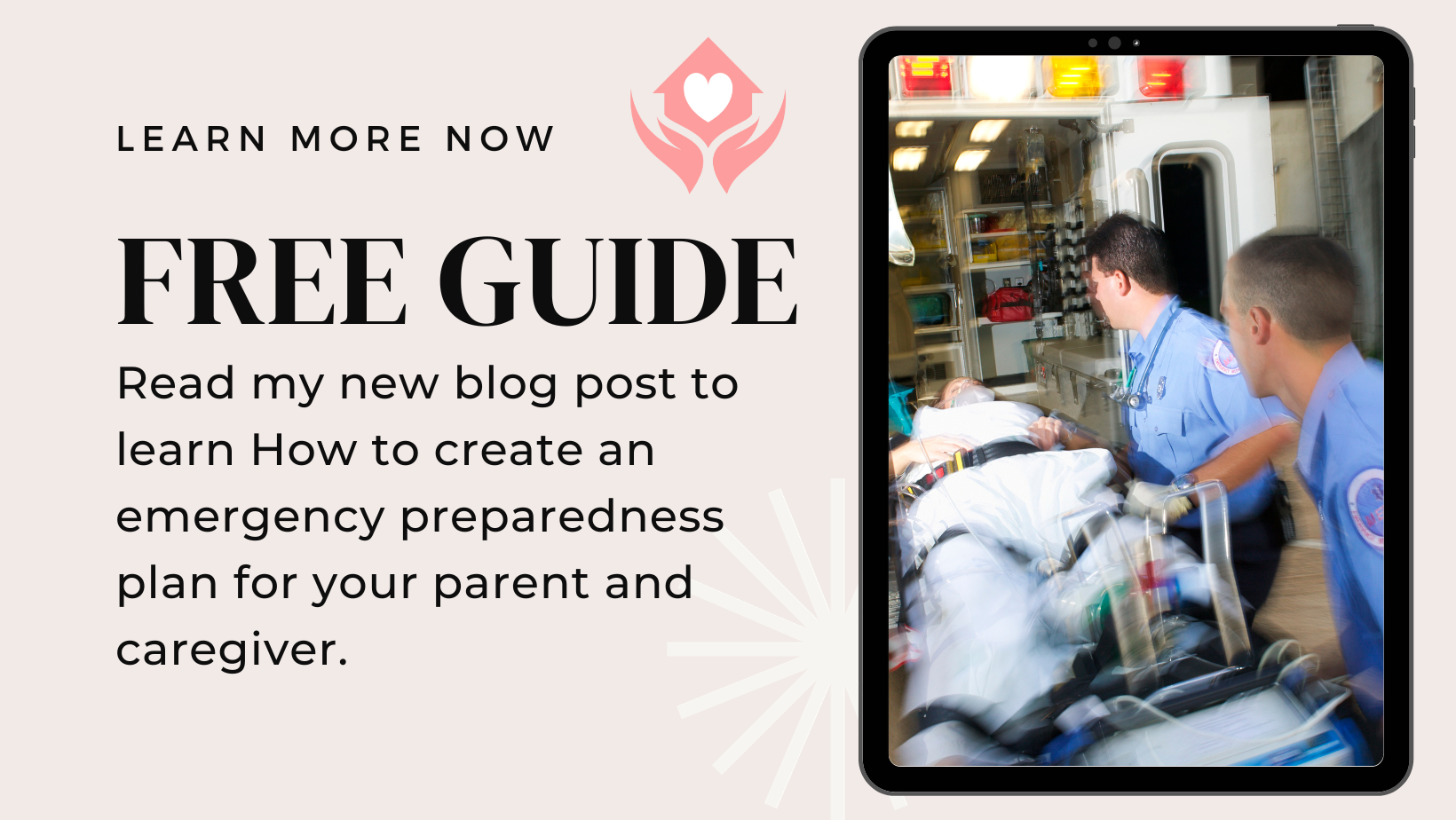
Caring for a senior loved one comes with its unique challenges, especially when it comes to emergency situations. Being well-prepared can make all the difference in ensuring the safety and well-being of your elderly family member during times of crisis. In this comprehensive step-by-step guide, we will explore essential measures and strategies for emergency preparedness for senior caregivers, providing you with peace of mind and the ability to protect your loved one effectively.
????
Step 1: Assess Your Senior's Specific Needs
The first crucial step in emergency preparedness is to assess your senior loved one's specific needs. Consider their mobility, medical conditions, medications, dietary restrictions, and any assistive devices they rely on. Understanding their unique requirements will inform your emergency planning.
Step 2: Create an Emergency Contact List
Compile a comprehensive list of emergency contacts. This list should include:
- Primary healthcare providers and specialists
- Local hospitals and clinics
- Neighbors and nearby family members
- Local authorities (police, fire department, and emergency services)
- Senior living community or assisted living facility staff (if applicable)
Share this list with all family members involved in caregiving, and ensure it's easily accessible, both digitally and in hard copy.
Step 3: Develop an Evacuation Plan
In the event of a disaster or evacuation, have a clear plan in place. Determine escape routes, meeting points, and modes of transportation. If your senior loved one resides in a care facility, inquire about their evacuation procedures and ensure they have an updated copy of the plan.
Step 4: Prepare an Emergency Kit
Assemble an emergency kit that contains essential supplies to sustain your senior loved one for at least three days. Include items like:
- Non-perishable food and water
- Medications and medical supplies
- Flashlights with extra batteries
- A battery-operated radio
- First aid kit
- Blankets and warm clothing
- Personal hygiene items
- Important documents (copies of ID, insurance policies, medical records)
Regularly check and update the contents of the emergency kit to ensure everything remains in good condition and medications remain within their expiry dates.
Step 5: Medication Management and Record Keeping
Create a medication management system that includes an updated list of your senior's medications, dosages, and the prescribing physician's contact information. Keep a copy of this list in the emergency kit and ensure family members are aware of it. Consider automatic pill dispensers to assist with medication management.
Step 6: Communication Plan
Establish a communication plan to stay in touch with your senior loved one during emergencies. Ensure they have a charged cell phone, a charger, and a backup power source, such as a portable power bank. Teach them how to use text messaging, social media, or other communication apps for updates.
Step 7: Mobility Assistance
If your senior loved one has mobility challenges, plan for their safe evacuation. Invest in mobility aids like wheelchairs, walkers, or canes that can be easily transported in an emergency. Ensure that escape routes and transportation options are accessible for them.
Step 8: Consider Special Dietary Needs
If your senior has specific dietary restrictions or allergies, ensure that their emergency kit includes suitable foods and necessary medical supplies. Consider including meal replacement options or dietary supplements.
Step 9: Medical Alert Systems
Consider subscribing to a medical alert system that allows your senior loved one to call for help in emergencies, even if they are unable to reach a phone. These systems often come with wearable devices that can be activated in case of a fall or medical issue.
Step 10: Fire Safety and Prevention
Take steps to prevent fires in the home by regularly checking smoke detectors and replacing batteries. Discuss fire safety procedures with your senior, including escape routes and how to use a fire extinguisher if necessary.
Step 11: Weather-Related Preparedness
For weather-related emergencies like hurricanes, floods, or extreme heat, monitor local weather alerts and stay informed. Ensure your senior loved one has access to weather updates and follows recommended safety precautions.
Step 12: Stay Informed
Stay informed about local emergency protocols and community resources. Sign up for emergency alerts and notifications from local authorities to receive timely information about potential threats or disaster situations.
Step 13: Regular Drills and Training
Conduct emergency drills with your senior loved one and the entire caregiving team. Practice evacuation routes, communication procedures, and the use of emergency supplies. Regular training will help everyone stay prepared and calm during actual emergencies.
Step 14: Seek Additional Support
Consider enlisting the help of a geriatric care manager or an emergency preparedness expert. These professionals can provide guidance on tailoring your emergency plan to your senior loved one's unique needs.
Step 15: Review and Update
Regularly review and update your emergency preparedness plan as your senior loved one's needs change. Update contact lists, medications, and supplies accordingly. Additionally, consider conducting periodic drills to ensure everyone is familiar with the plan.
Learn More: Additional Emergency Preparedness Strategies from the American Red Cross and download their Older Adults Preparedness Checklist
Conclusion
Emergency preparedness for senior caregivers is not just a responsibility; it's a lifeline that can protect your senior loved one during unforeseen circumstances. By following this step-by-step guide and diligently implementing these measures, you can ensure the safety and well-being of your elderly family member, providing them with the best possible care even in challenging times. Remember that being prepared not only reduces stress but also empowers you to act swiftly and effectively in the face of emergencies.